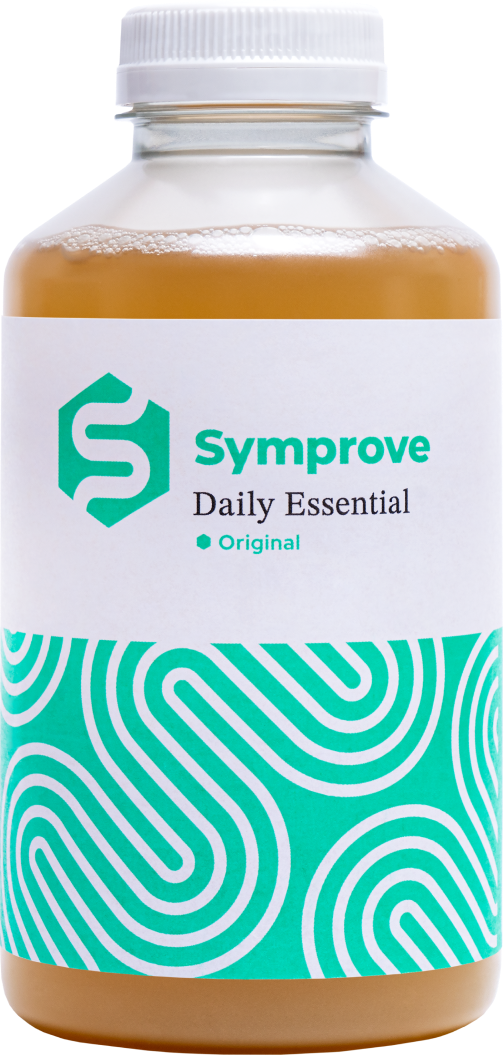Dr Sarah Jarvis is Clinical Director for Patient Platform Limited, as well as working as a GP locum. After training in medicine at Cambridge and Oxford, she became a GP in a busy London practice in 1990, where her devotion to the profession led her to train 27 aspiring GPs over the course of 25 years. In 2018, in recognition of her services to General Practice and Public Understanding of Health, she received her MBE from Her Majesty the Queen. Dr Jarvis has also been the resident doctor for the Jeremy Vine show on BBC Radio 2 for the last 19 years, as well as being a doctor on ITV’s Lunchtime News and Good Morning Britain. To coincide with IBS Awareness Month, we sat down with Dr Jarvis to talk about digestive health.
Where does your interest in diet and lifestyle stem from?
I have always been fascinated by the role of diet and lifestyle in health, even as a medical student. I spent a year studying food and human nutrition at Cambridge and my dissertation as a clinical medical student was on the role of dietary fibre in the aetiology of disease.
In the years since then, I have become ever-more convinced that as healthcare professionals, we can achieve as much for our patients by engaging them in their own health and lifestyle as we can with medications.
As a GP, why is it important for you to consider your patients gut health?
With gut health issues on the rise, more people are resorting to self-management of their gut symptoms with limited knowledge of what is most appropriate for their individual needs. It is therefore important for me as a GP to provide useful information that enables my patients to make the right decision about their health.
The gut is considered the second brain. It contains almost 70% of the body’s immune cells, and the gut microbiome can have an impact on immunity to infection. Additionally, overgrowth of the wrong type of bacteria can result in increased fermentation of food, gas production, and IBS symptoms. In the long term, this may predispose individuals to health conditions. Emerging evidence suggests that the gut microbiome – and in particular a state of imbalance in the make-up of the gut microbiome (dysbiosis) – is more closely linked to type 2 diabetes and obesity than we previously thought.
Many studies are now showing distinct differences in gut microbiome composition in disease versus healthy controls. There is strong evidence that dysbiosis can activate the gut immune system, leading to inflammation. This in turn has the potential to affect mood, brain physiology, and cognitive function.
What are the most common digestive health conditions that you see in primary care?
IBS symptoms affect up to one in five people in the UK over the course of their lifetime, and are about twice as common among women as men. The introduction of the Rome IV criteria in 2016 lowered prevalence estimates from 10-20% to about 3.8%. Nonetheless, many patients have several IBS symptoms yet do not fulfil the Rome IV criteria. These patients can still find their lives significantly affected and present frequently in general practice.
Dyspepsia and heartburn are also frequent problems, with proton pump inhibitors the most commonly prescribed drugs in the UK. But as a doctor who grew up referring patients regularly for peptic ulcer surgery – the need for which has been dramatically reduced by effective drug treatment – I have seen major advances for patients with gastro-oesophageal reflux disease, dyspepsia, and peptic ulceration. Likewise, inflammatory bowel disease still creates a heavy burden of disease for some, but the advent of newer biologic treatments has significantly improved outcomes for many patients.
Sadly, we have seen nothing like the same transformation in treatment for patients with IBS. My drug treatments remain limited, and referral targets have often made it difficult to arrange secondary care assessment. These patients live with debilitating symptoms and may perceive that their suffering is not taken seriously, leading them to return for repeat visits, known as the “revolving door effect”.
What is the role of the GP in discussing dietary and lifestyle changes with IBS patients?
Firstly, it is important to get a clear shared understanding between GP and patient of IBS and what it means to them. Using tools such as motivational interviewing and shared decision making can be key in engaging the patient in their own care. Too often they feel ignored and misunderstood by GPs. Being faced with recommendations to change their lifestyle can reinforce the feeling that the doctor is not taking their condition seriously. Often the advice is sound, but the patient does not engage because they feel lifestyle advice is given to avoid giving ‘proper’ treatment.
Thus, the GP has a crucial role to play in helping the patient to understand the nature of IBS, and the fundamental impact of diet and lifestyle on many serious medical conditions. I often explain that when I diagnose type 2 diabetes or asthma, my focus is as much on lifestyle changes as on medication.
Working through the patient’s health beliefs and putting them into the context of the condition is often the best way of ensuring they understand their condition is being taken seriously and that you are working together as a team. Only once the patient and I have a shared understanding of the condition, and the way in which diet and lifestyle changes form a fundamental part of treatment, can we proceed to looking at specific changes.
How important and dietary and lifestyle changes in the management of IBS?
IBS cannot be ‘cured’ in the sense that a single treatment will get rid of symptoms permanently. However, diet and lifestyle changes, along with medication if needed, can help relieve symptoms.
While establishing a causal link using traditional randomised controlled trials is always challenging where diet and lifestyle is concerned, there is strong observational data linking suboptimal diet and lifestyle to presentation with IBS symptoms. In addition to diet, other factors implicated in IBS include physical inactivity, sleep disturbance, and irregular eating (which may lead to disturbed colonic motility).
IBS can also be worsened by stress in some people, so while it is often easier said than done, keeping stress to a minimum can help keep IBS symptoms at bay. Patients often end up in a vicious cycle – if they are stressed, their IBS can flare up. This in turn takes its toll on their mental health and resilience and may undermine their ability to self-care.
People with IBS also regularly report that certain foods increase their symptoms. While these vary between patients, the most frequently reported include carbohydrate-rich foods, fatty foods, coffee, alcohol, and hot spices.
Many high-carbohydrate foods contain significant levels of FODMAPs (fermentable oligosaccharide, disaccharide, monosaccharide, and polyols). Evidence suggests that adopting a low FODMAP diet leads to significant improvements in symptoms in 52-86% of patients. Individuals whose symptoms improve on a low FODMAP diet can then undergo structured reintroduction of individual FODMAP foods to allow a broader diet without exacerbating their symptoms.
However, a low FODMAP diet can easily be nutritionally incomplete if not undertaken with expert dietetic advice. Therefore, this diet should always be undertaken under dietitian supervision.
Finally, there is evidence that some probiotics, administered as particular combinations, species, or strains, may help improve overall IBS symptoms.
What do you look for when selecting a probiotic for your patients?
Evidence, evidence, and evidence. Evidence that it provides the benefit you are seeking – in this case, that it targets IBS specifically. Evidence that it provides an effective dose and, most importantly, evidence that it is safe. You can contact the probiotic manufacturer for further information on their product, to ensure that their supplement is able to arrive, survive, and thrive in the gut.
How do you optimise your own gut health?
My children say that I have always been obsessed with ensuring that we get an adequate intake of a wide variety of vegetables and fruit, and keeping our intake of refined carbohydrates to a minimum. Personally, I practise intermittent fasting, eating over a six-hour period every 24 hours for at least six days a week, and allowing myself one day off a week for social engagements. In addition, I ensure a regular intake of prebiotic foods (live yoghurt, kimchi, miso soup, onions, garlic), and I take Symprove, my preferred daily probiotic supplement.
What’s the main thing you’d want readers to take away from this interview?
With IBS symptoms affecting up to 20% of the population, it is a condition that GPs inevitably come across in their practice. Treating IBS is about symptom management rather than administering a cure. This is an important message to convey to patients, who may see sound recommendations to change their diet and lifestyle as a fob off in place of being offered ‘proper’ treatment. It is therefore essential to have open and honest dialogue with patients about their perceptions of how you can help them and, ultimately, how they can help themselves.



